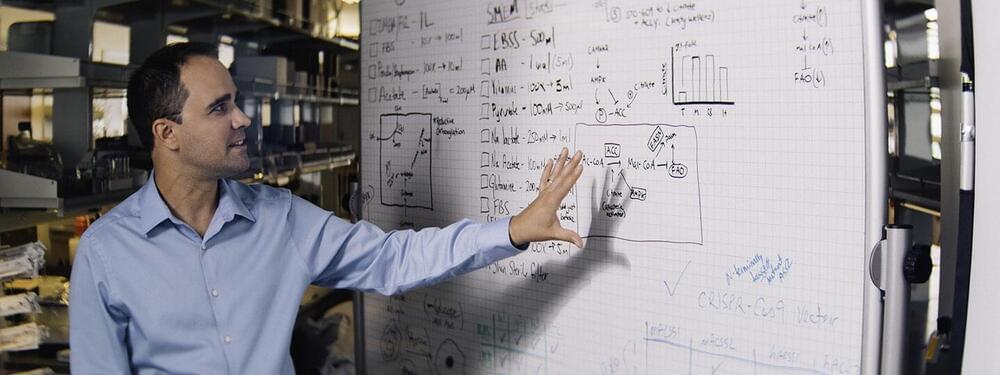Zachary Schug, Ph.D., assistant professor in the Molecular and Cellular Oncogenesis Program of the Ellen and Ronald Caplan Cancer Center at The Wistar Institute, has published a new paper in the journal Nature Cancer. Schug’s paper, titled “Acetate acts as a metabolic immunomodulator by bolstering T-cell effector function and potentiating antitumor immunity in breast cancer,” demonstrates a double-acting mechanism for fighting a particularly aggressive, difficult-to-treat form of breast cancer. Schug’s research shows how silencing a certain gene, ACSS2, may improve existing treatments for patients.
Triple-negative breast cancer, or TNBC, affects 10–15% of patients with breast cancer in the US. TNBC is called “triple-negative” because the cancer lacks an estrogen receptor, a progesterone receptor, and a HER2 (human epidermal growth factor) receptor. The absence of any of these receptors—receptors that when present in other forms of breast cancer, can be effectively targeted during treatment—makes treating TNBC quite difficult, and patients with TNBC have limited treatment options.
TNBC’s notorious aggression makes the technical challenge of finding a reliably effective treatment target all the more serious: compared to other breast cancers, TNBC grows faster and resists treatment more stubbornly. All these factors contribute to the fact that TNBC patients suffer from worse prognoses.
